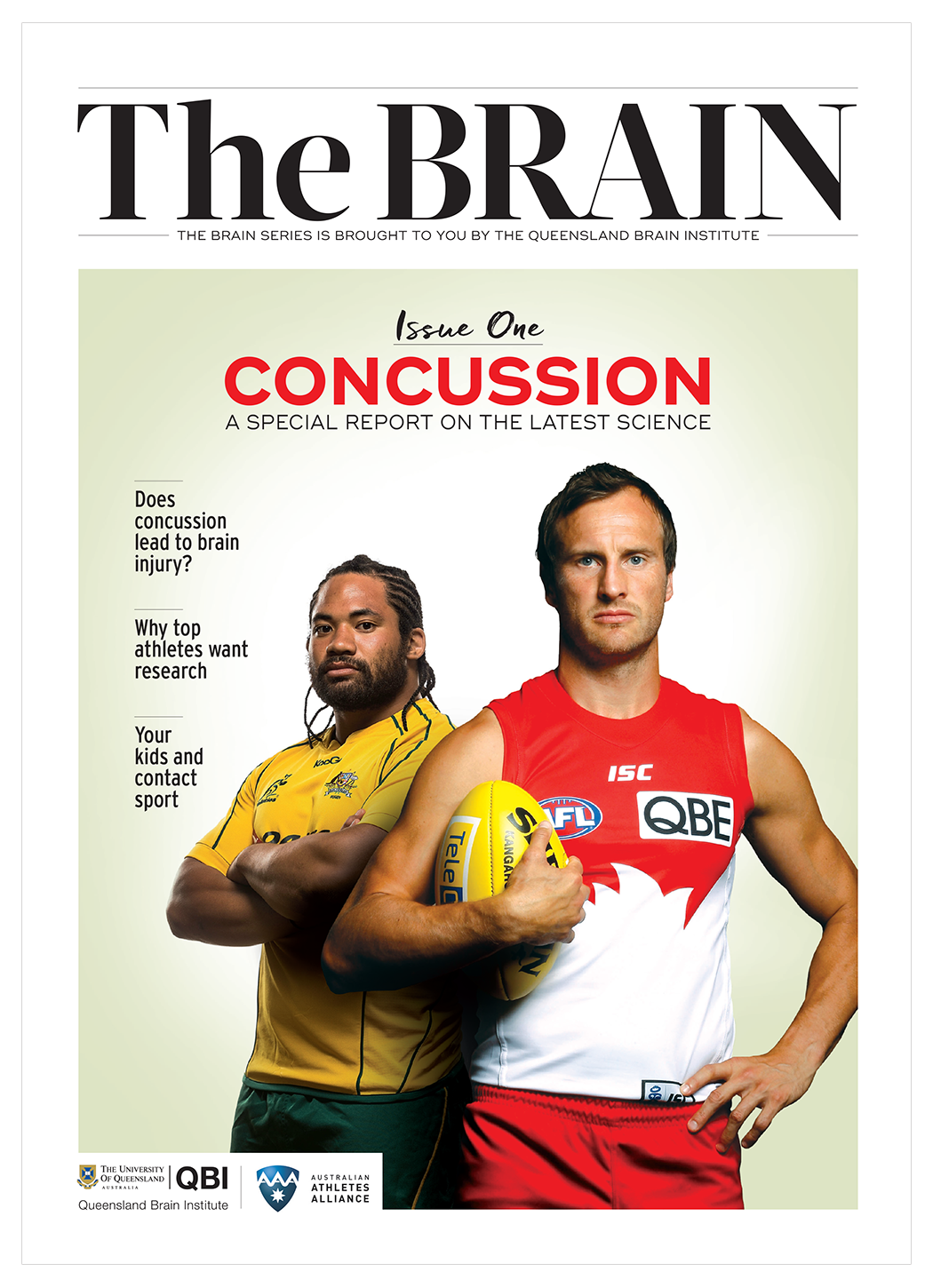The symptoms of a severe concussion are immediate – dizziness, blurred vision, memory loss or even loss of consciousness, but for a mild concussion that doesn't involve being knocked out, symptoms may not seem obvious until days later.
UQ neurologist Professor Michael O’Sullivan explains that part of the problem is that initial symptoms of a concussion – such as memory problems – can sometimes be quite subtle, and aren’t noticed until they become more pronounced.
"It’s the recognition that something isn’t quite right that takes time," he says.
As for symptoms becoming more severe over time, there can be a few reasons for this, explains QBI’s Dr Fatima Nasrallah.
Every concussion is different, she says. The location and force of some impacts are more likely to cause immediate loss of consciousness or vision problems, and these are hard to miss.
"But It might be that the concussion or impact happened in an area that took a long time to cause further damage," she says. In this case, the associated symptoms, such as headaches and ability to multitask, may take a little longer to become apparent.
Mild concussions can still cause brain injury
She also points out that even if a concussion doesn’t have any initial symptoms, it doesn’t mean the brain hasn’t been damaged. Even a mild concussion needs time to heal.
This is particularly an issue in sport. If a concussion isn’t obvious at first, continuing to play even the next day or the next week can aggravate the original injury and lead to further damage and the onset of symptoms.
So, as time passes, and new symptoms emerge it’s quite difficult to tell whether these are due solely to the initial concussion or whether additional injuries have accumulated on top of it.
Dr Nasrallah also points out that a person’s prior concussions may influence the severity and behaviour of a new concussion. In particular, previous head injuries might prime the body to react more strongly to the next one.
It’s important to note that with any head injury that causes a concussion, there can be a risk of separate injuries such as swelling of brain tissue or bleeding in the brain, which can be life threatening. So it’s always important to monitor head injuries closely to pick up subtle signs of concussion as well as any signs of more dangerous conditions.
If a head injury results in a loss of consciousness, increasing confusion, vomiting or worsening headache, always seek medical attention.
Image credit: Getty

